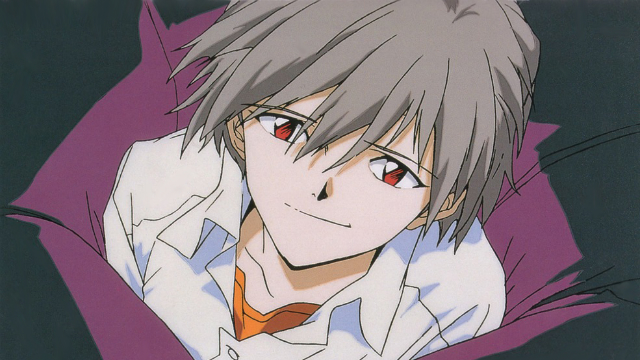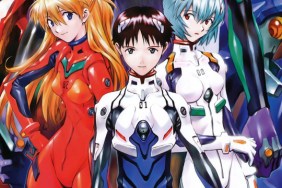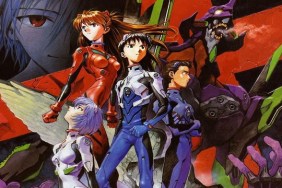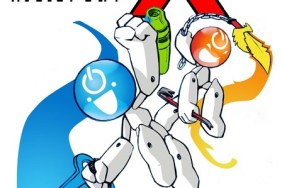Netflix recently released Neon Genesis Evangelion, complete with a new English-language dub with a new cast of voice actors and new subtitles. Evangelion is a psychodrama about isolation, framed through the sexual awakening of a boy coming of age in a time of global crisis. The environment has collapsed and the international scene has barely pulled itself together after 15 years of genocidal war. Hideaki Anno captured the confusion, terror, and elation of adolescence through Shinji, a character the new translation insistently misreads as straight despite the body of evidence that his identity is more complicated.
Like much of the original audience, I watched A. D. Vision’s Evangelion while discovering my nascent identity in a homophobic setting bereft of role models. What I got was Shinji, who, while not role model material, reflected my struggle. The new translation by Dan Kanemitsu, who has previously worked with Studio Khara on Rebuild of Evangelion, is committed to a literal reading. The reworked translation represses the queerness of Shinji and Kaworu while playing up a romance between Shinji and Asuka. I have watched the ADV and Netflix versions side by side to verify other viewers’ accounts and have confirmed the translations.
The prioritization of a literal reading over localization stifles Episode 24’s bath scene, the most obvious performance of Shinji’s queerness and his desperation to be loved. Originally, Kaworu tells Shinji he is “yes, worthy of love,” where “love” is localized from “kōi, 好意,” a play on “koi, 恋.” The former means “goodwill” or “favor,” while the latter is explicitly romantic infatuation. Kanemitsu’s translation plays it straight: “You’re worthy of my grace.” But not his love? I had a confidante who told me I’d misunderstood my own feelings. When I grew up a bit and found a boy I really liked, it would pass. I was not worthy of her grace. Our friendship ended after she tried to exorcise my girlfriend.
sorry but this is not ok (right is from the new netflix eva script) pic.twitter.com/LehJYFjMng
— Jimmy Gnome (@jimmygnome9) June 21, 2019
Kaworu goes on to say in Kanemitsu’s version, “it means I like you.” ADV localized “suki” to love. “Suki, 好き” literally means “like,” but in this confessional, intimate bathing scene, it carries the strong connotation of “love” and that is the common translation for romantic scenes. One of the tenderest moments of my life was holding hands with my girlfriend in the dark, when everyone else was sleeping. We said very little. It’s easy to imagine Kaworu’s hand here. That’s not a friendly handshake.
The moment is wasted again at the lakeside, while Shinji tells Misato that “Kaworu said he loved me. I’ve never felt such kindness before,” in the ADV translation, Kanemitsu reworks it to “Kaworu said I was worthy of his grace. That was the first time somebody told me that they liked me.” The change de-emphasizes love, the core theme of the show. Each change shifts this love from romantic to platonic, following the patterns of my childhood. It stings. When I told my friend I liked them too, they said, “Who knew I could have the apple of my eye so easily?” Perhaps that would be localized as us being best friends forever. A vice principal once referred to us as “special friends,” a repulsive euphemism for the wrong people like-liking each other. You know, “anata ga suki” like. He couldn’t look us in the eyes when he said it.
The original script is full of gentle confusions and puns. That even extends into the original title of Episode 26: “The Beast that Shouted Love at the Heart of the World,” which is now translated as “The Beast that Shouted I at the Heart of the World,” flubbing the Ellison reference and the pun on “ai, アイ,” or in kanji, “愛,” which is “love” and a homophone for “I” in English. The puns reflect the ambiguity in Shinji’s relationships with others; dropping them, dropping the double entendres, and dropping the love betray the point. Shinji is alone. Kaworu is the first person to unconditionally love him. We all want that for ourselves.
It is one thing for characters to confess their love. It is quite another for the audience to infer affection and leave them guessing. How committed are the characters? What possible misunderstandings might be talking place? Leaving room for interpretation make things exciting.
— 兼光ダニエル真 (@dankanemitsu) June 21, 2019
Kanemitsu stated on Twitter that he wanted to preserve the ambiguity of the boys’ relationship and leave things up to the audience, but he ups the heteronormativity of a scene in End of Evangelion between Asuka and Shinji. The new version has Shinji begging Asuka: “I want us to be together forever!” and “Please, you’re the only one for me, Asuka!” The ADV version has “I want to stay with you Asuka and I want to help you but I don’t know what to do,” and “Please, Asuka! You’re the only person that can help me!” Asuka still rejects him, but the change overemphasizes the romantic nature of his clinging with a callback to Shinji/Asuka ships.
The tension over this new translation rises how it echoes the erasure of queer characters from older media. The few LGBTQ+ characters in shows back in the 90s were often straight-washed as “cousins” or “close friends” or even gender-swapped, and these translations were used as excuses to erase our identities in the same way as the soft pedal homophobia of “you’re just confused.” We can’t even see our reflections in characters that creators make to resemble us because adaptations censored them out of existence while families and friends try to stuff us back into closets.
Shinji shared my moments of self-loathing and joy, from revolting advances by adults like Misato to tender confessions in the dark. I was just trying to understand why I was in love with my best friend in a world that wanted to deny my love was even possible. Shinji is also trying to understand love–love for himself, love for others–in a world too afraid to imagine the vulnerability love demands of us. This translation reflects that fear: fear of the unknown, of queerness, of vulnerability. This translation makes itself small the same way we are all asked to make ourselves small–hide the strange parts, the unsettling implications, the truth. Shinji is queer. So am I.











